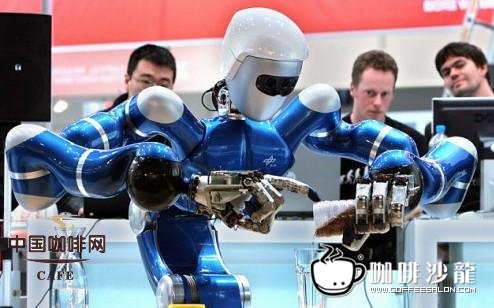Multinational companies are bullish on the Chinese market Starbucks KFC relies on the Chinese market
Ambitious Starbucks is expanding in China, but customer lingering is a big obstacle to Starbucks' expansion in China, it was reported on Wednesday. "customers love these stores so much that they sit hour after hour. Sometimes they don't even buy a cup of coffee." In fact, although these multinationals are expanding at an alarming rate in China, China is still a relatively small market in terms of their sales in China as a share of their total global sales, which depends on whether customers stay in stores for too long. Maybe it doesn't have much to do with it.
As of 2010, Starbucks had 459 stores in China, but the average Chinese consumer drank coffee only three times a year. Consumers in eastern China need to work 1.3 hours to buy a 12-ounce caramel macchiato, while those in the west and central China take 1.6 and 1.9 hours, respectively. Starbucks had global revenue of $10.71 billion in 2010, but revenue in China was only $358 million, accounting for only 3.3 per cent of its global revenue.
How dependent are multinational companies on the Chinese market? Will there be no recovery without the Chinese market? We looked at the annual reports of several companies, and the data may disappoint many people-in fact, the lack of the Chinese market is not very important to most multinationals. China's ubiquitous Carrefour supermarket still makes most of its revenue in France, with revenues of 8.169 billion euros in China in 2011, less than 10% of its total global revenue. Even for Coca-Cola, which can be seen almost anywhere in the world, the Chinese market accounts for only about 7% of its total revenue. Among our most common multinationals, perhaps only Yum's KFC will have a lot of difficulties leaving the Chinese market, where KFC accounts for 49.8% of its total revenue, or almost half of its total revenue.
The research report released by the Economist Intelligence Unit (EIU) at the end of last year also supports this conclusion. According to the report of the Economist, the global financial crisis has made multinational corporations, especially large ones, more dependent on the Chinese market to generate more revenue, but at present, China is still a relatively small market for most multinational corporations. The report is based on a survey of 328 senior managers of non-Chinese multinationals, as well as in-depth interviews with executives, business scholars and market analysts of large foreign multinationals. In this survey, only 8% of respondents believe that China is already their largest market, 17% of companies expect China to become their largest market within five years, and 21% think this will happen within 5-10 years.
Of the 70 multinationals surveyed that disclosed data on the Chinese market, only 10 companies accounted for more than 20% of their global revenue last year, including Mead Johnson, Cartier, BHP Billiton, Yum, Ultra Semiconductor and so on. China accounts for less than 10% of the revenue of more than half of the multinationals.
The survey also shows that while multinationals are still bullish on China, there are signs that they are distributing their investments around the world to balance their overall strategic layout. Thirty-seven per cent of respondents thought China was critical to global strategy, compared with 53 per cent in the 2004 survey. Another 33% of respondents believe that although the Chinese market does not have a vital position, it also has important strategic significance, down from 41% in the 2004 survey.

Important Notice :
前街咖啡 FrontStreet Coffee has moved to new addredd:
FrontStreet Coffee Address: 315,Donghua East Road,GuangZhou
Tel:020 38364473
- Prev

Germany has developed a roller robot that is good at brewing coffee.
The robot, whose male name is RollinJustin, is one of the most advanced robots in the world. It can perform delicate and sensitive movements through vision and touch, and perform tasks such as catching the ball and making coffee. A researcher threw a ball at him, and Justin predicted the trajectory of the ball through visual feedback calculation, reaching out his four-fingered machine.
- Next

The green dream of Yunnan coffee is the only way to take intensive processing, and join the competition of international coffee giants.
Yunnan coffee was planted on a large scale in the mid-1950s, with a planting scale of 4000 hectares at one time. By the end of 1997, the planting area of coffee in the province had reached 7800 hectares. At present, the planting area of the province accounts for 70% of the national area, and the output accounts for 83% of the whole country. Yunnan coffee has established the dominant position in China in terms of planting area and coffee bean production. At present, Pu'er City is still there.
Related
- What grade does Jamaica Blue Mountain No. 1 coffee belong to and how to drink it better? What is the highest grade of Blue Mountain coffee for coffee aristocrats?
- What are the flavor characteristics of the world-famous coffee Blue Mountain No. 1 Golden Mantelin? What are the characteristics of deep-roasted bitter coffee?
- Can I make coffee a second time in an Italian hand-brewed mocha pot? Why can't coffee be brewed several times like tea leaves?
- Hand-brewed coffee flows with a knife and a tornado. How to brew it? What is the proportion of grinding water and water temperature divided into?
- What is the difference between Indonesian Sumatra Mantinin coffee and gold Mantinin? How to distinguish between real and fake golden Mantelin coffee?
- What does bypass mean in coffee? Why can hand-brewed coffee and water make it better?
- Unexpected! Ruixing Telunsu lattes use a smoothie machine to foam milk?!
- % Arabia's first store in Henan opens into the village?! Netizen: Thought it was P's
- Does an authentic standard mocha coffee recipe use chocolate sauce or powder? Mocha Latte/Dirty Coffee/Salty Mocha Coffee Recipe Share!
- What is the difference between Vietnam egg coffee and Norway egg coffee? Hand-brewed single product coffee filter paper filter cloth filter flat solution!

